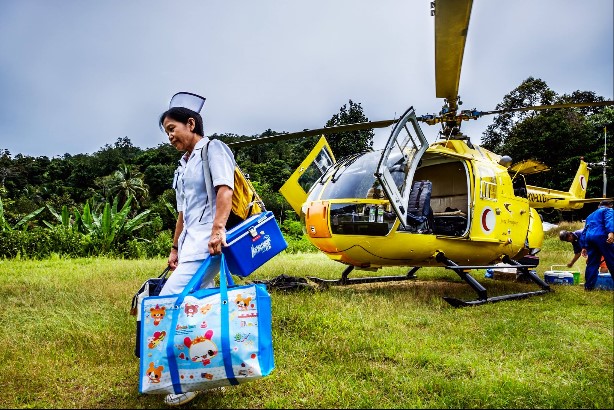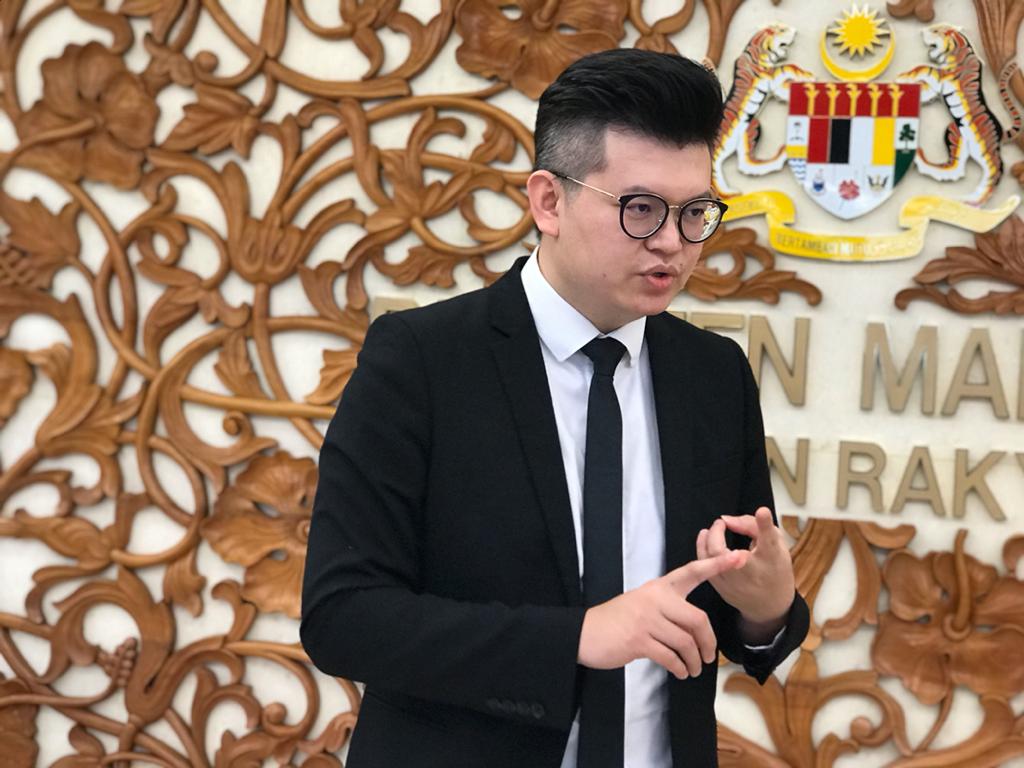KUALA LUMPUR, Nov 16 — The accounting reclassifications in the Ministry of Health’s (MOH) 2021 budget conceal increases or decreases in allocations for each health programme, said Dr Kelvin Yii.
The Bandar Kuching MP questioned how MOH would allocate the two lump-sum budgets totalling RM4.29 billion under Specific Programmes to each specific clinical department or health programme.
“We actually don’t know whether there has been an increase or decrease in each department or discipline. We don’t know. How will they allocate the lump sums in the ‘Program Khusus’?” Dr Yii told a webinar organised by Sarawak PKR yesterday on the impact of Budget 2021 on Sarawakians.
“Who will make the decisions on how much will be allocated to each department? Will this add the risk of abuse of power, risk of corruption? There is too much discretion for decision-making in this ‘Program Khusus’. And it will impact each head of department in each health sector.”
He pointed out that oncologists or nephrologists, for example, would face problems in clinical care without knowing their specific funding allocation for next year, as they would not know how many patients they can treat in 2021. Heads of department, meanwhile, would be unable to plan ahead for next year.
“This will affect the quality of care or service rendered to the patient. Imagine if I’m a cancer patient, and my doctor tells me, ‘I don’t know if I can treat you, I have to wait for my funding allocation to be approved by Program Khusus’.”
“This is not just worrying; it’ll disrupt the whole chain of service. It’ll add bureaucracy and paperwork.”
Dr Kelvin Yii, Member of Parliament for Bandar Kuching
Dr Yii, who is a trained doctor, highlighted the non-communicable disease (NCD) crisis in Malaysia, as the country has the highest diabetes and obesity rates in Asia. In the mid or long-term, more cases of kidney failure will emerge.
“But I look at the allocations for the clinical departments, I don’t know if it increased or decreased. Because according to the way they classified it this year, it’s weird — they cut from almost every sector and put it in a special ‘Program Khusus’. Of course, each ministry has this Specific Programmes, but the issue is that it’s not transparent.”
The DAP lawmaker cited Finance Minister Tengku Zafrul Aziz’s November 7 explanation that the allocation for medical supplies in MOH’s 2021 budget, totalling RM4.29 billion, had been moved into Specific Programmes under operating expenditure, as Zafrul denied that health care allocations were reduced.
In 2020, MOH’s budget for medical supplies was allocated under each respective programme separately: medical, public health, pharmacy services, and dental. MOH also explained recently that it has reclassed RM2.065 billion in allocations for hospital support services involving concessionnaires (RM1,928,583,000) and clinic support services (RM137 million) from the operating to development budget for 2021.
“Maybe, from an accounting or finance perspective, it is okay to do this reclassification. They want to put in devex (development expenditure), because there is a legal requirement, revenue must be higher than opex (operating expenditure), so they want to be creative about it,” Dr Yii said.
“Even though in finance or accounting it can be done, but on the clinical basis, it’ll affect functions on the ground. So I’m afraid, next year, the whole operations, the whole caregiving in hospitals and clinics will be affected because of this new way of accounting.”
CodeBlue previously reported wide-ranging cuts across public health and nearly all health care services in MOH’s 2021 budget, with decreases of above 58 per cent for radiotherapy and oncology; cardiothoracic; pharmacy and supplies; and nephrology.
Is The RM1.4 Billion Contract For Pharmaniaga?

Dr Yii further questioned the RM1.4 billion allocated for private concession of medical laboratories and stores (APPL) under Specific Programmes in MOH’s 2021 budget.
Pharmaniaga Berhad, which has warehousing and logistics facilities, is the biggest Bumiputera tender agent in the country with exclusive concession to supply 700 items in the Approved Product Purchase List (APPL) comprising medicines and other medical items, determined by MOH, to government hospitals, institutions, and clinics. This makes up over a third of the government’s drug supply.
“Under the Pakatan Harapan (PH) government, we already made a Cabinet decision — we would open tender the concession agreement with Pharmaniaga. The transition period would end December 31, 2021,” Dr Yii said.
“If the concession ends next year, why did they get RM1.4 billion this year? Does this mean they’ll extend the contract with Pharmaniaga? If extend, is it open tender? Did other companies enter to give more competitive prices? Or is this a separate tender or contract from the contract ending December 31, 2021? We need clarification from the health minister.”
Sarawak Unprepared If Covid-19 Surge Hits Rural Areas

Dr Yii said MOH’s 2021 budget only increased by 4.3 per cent from 2020, smaller than the 6.6 per cent raise under the-then PH administration when the Covid-19 pandemic had not yet emerged.
“But now, even with the current pandemic, the increase was only 4 per cent. It’s definitely not enough. If you look at the macro perspective, the whole [federal] budget increased by 8.6 per cent, so why only 4.3 per cent for the health budget?”
Dr Yii said Sarawak would not be able to handle a surge of patients if the Covid-19 epidemic hit rural areas in the state, just like how it struck neighbouring Sabah with particular brutality.
“We can see for ourselves the condition of infrastructure or clinics in our rural areas. Our hospitals do not have enough beds or facilities, or human resources, like doctors, nurses or medical assistants,” the Sarawakian MP told the webinar, pointing out that 45 per cent of public health clinics (Klinik Kesihatan) in the rural areas of Sarawak are not staffed with doctors.
“So imagine, if a pandemic spreads quickly in rural areas, we don’t have human resources or infrastructure to accommodate a surge of patients. Covid is a stress test, not just on our economic but also health care system.”
“What happened in Sabah shows the effect of years-long neglect of our health care system, especially in Sabah and Sarawak, and in several rural areas in peninsular Malaysia.”
Dr Kelvin Yii, Member of Parliament for Bandar Kuching
Sarawak has recently reported a string of new Covid-19 clusters in the state capital of Kuching. The districts of Miri, Lundu, and Lawas were yellow zones as of yesterday, reporting 11 new infections in total across the three districts within the past 14 days. Sarawak Local Government and Housing Minister Dr Sim Kui Hian posted yesterday that the Greenhill Cluster across Kuching, Miri, and Bintulu was still active after 14 days, beyond the third generation of spread and with many isolated coronavirus cases remaining unlinked.
Dr Yii said Budget 2021 should not just be about listing areas of expenditure, but also encapsulate the government’s vision on how to resolve long-standing issues in the lack of resources for health care.
“Where is the focus on investment and development? In this budget, I don’t see that vision. They just added expenditure to buy PPE (personal protective equipment), vaccine, and emoluments, salary for contract workers because they hired contract workers to accommodate an increase of patients.
“If we deduct all that, actually this budget is smaller than last year.”







